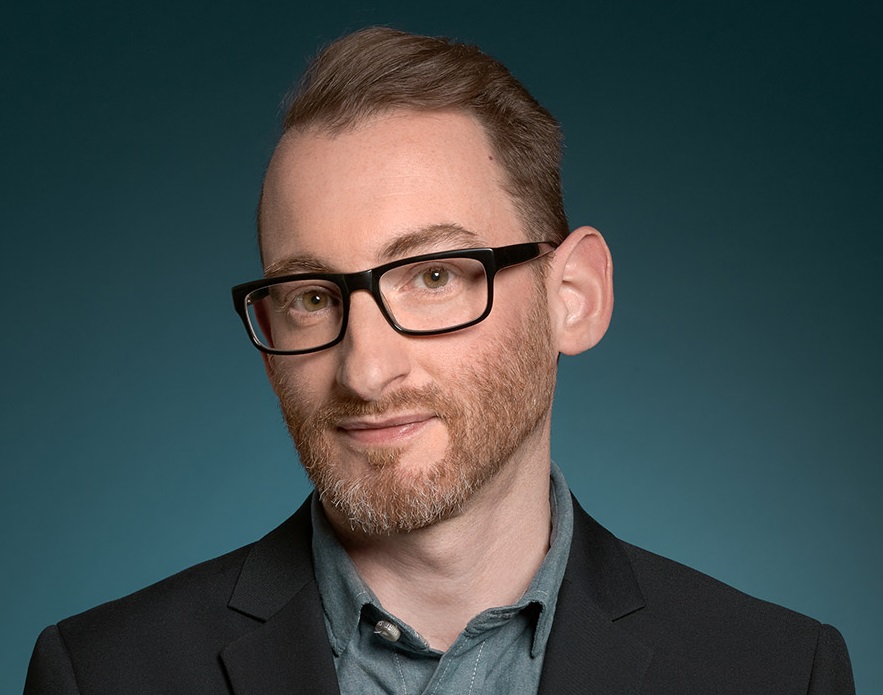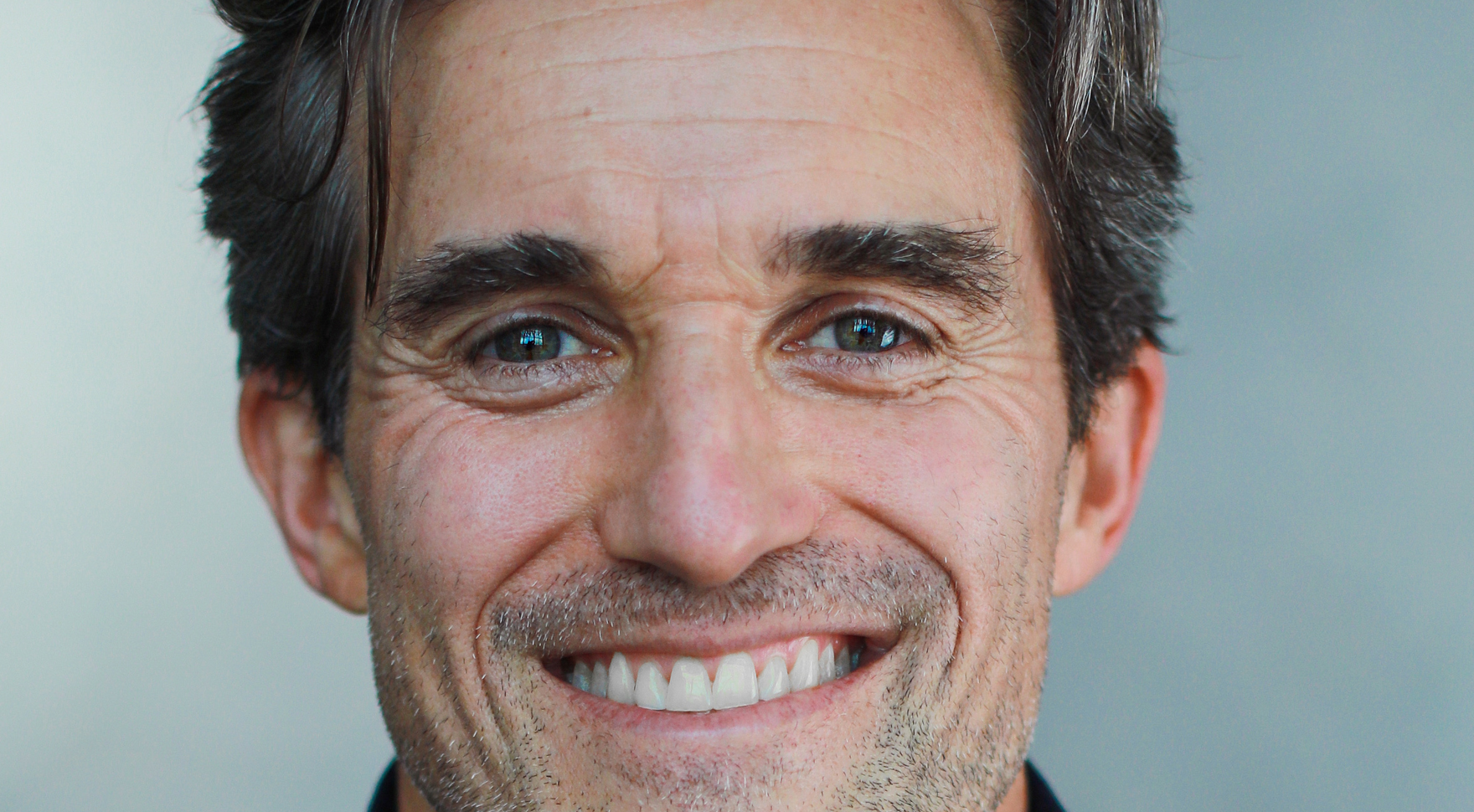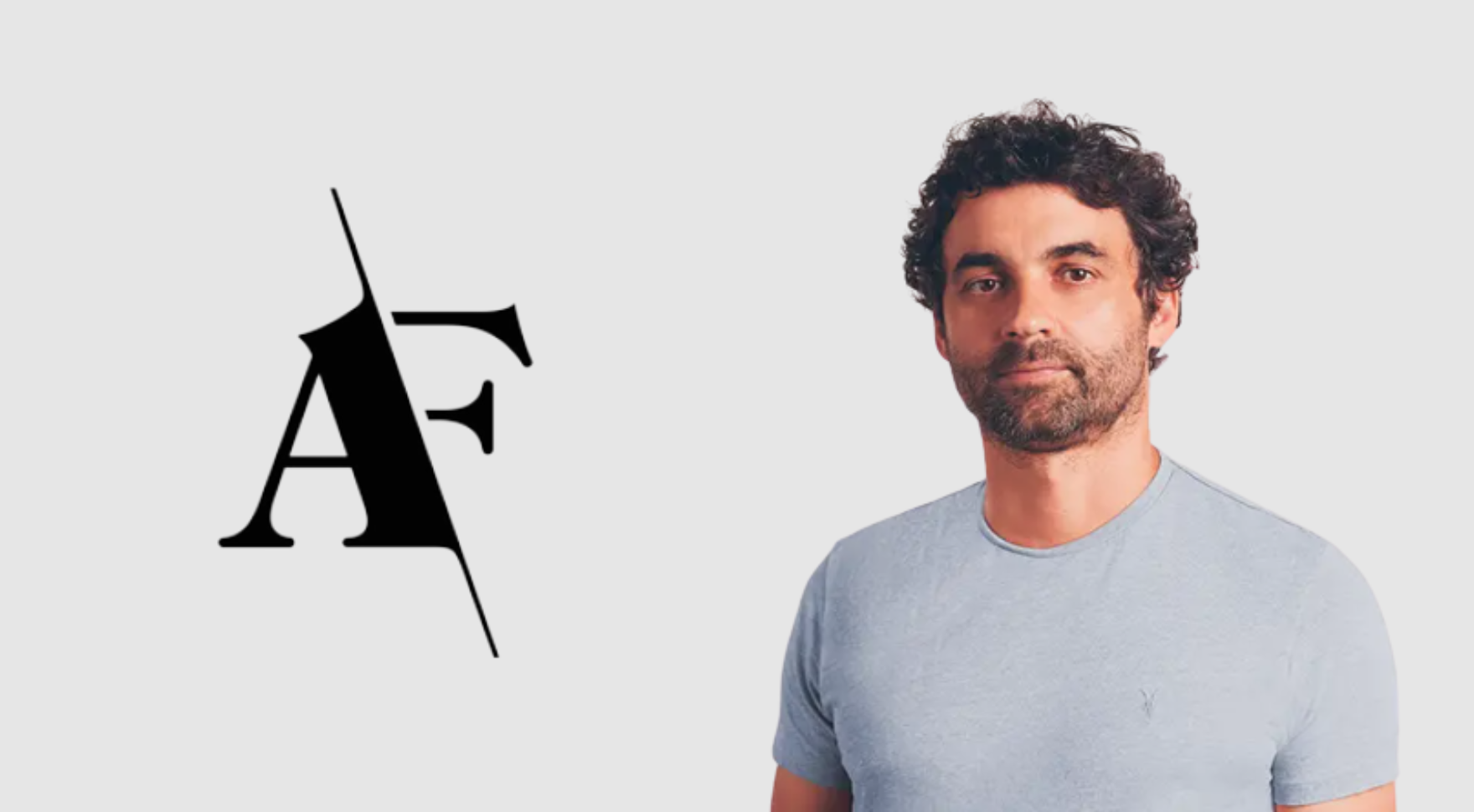
Jeremy Cohen on sustainability and supporting companies with their ESG challenges
01st Sep 2021
Jeremy Cohen, Partner at Blurred, shares his thoughts on sustainability and ESG challenges for global brands
In this episode, we spoke to Jeremy Cohen, Partner at Blurred, one of the leading strategic and creative sustainability advisory firms. He is a long-time CEO counsellor and ESG expert, with a wealth of experience in sustainability and purpose, having enjoyed a 25-year career in companies including Philips, Shell, SWIFT, and Arcadis. He shares his experience of working on ESG challenges for companies across the world, balancing their global goals with local needs and stakeholder expectations.
Creative Culture: Hello and welcome to the Creative Culture podcast interview series. And today we’re delighted to be speaking to Jeremy Cohen, partner at Blurred, which is one of the leading strategic and creative sustainability advisory firms. And he’s a long-term CEO councillor and ESG expert. And he has a wealth of experience in sustainability and purpose, having enjoyed a 25 year career in companies including Philips, Shell, SWIFT and Arcadis. And in this episode, he’s going to share his experience of working on the ESG challenges for companies across the world, balancing their global goals with local needs and shareholder expectations. So, Jeremy, welcome.
Jeremy Cohen: Thank you very much. It’s great to be here.
Creative Culture: Thank you. And perhaps you can tell us a little bit about yourself, your career, current role and really what brought you to working in sustainability, ESG and CSR?
Jeremy Cohen: Sure, thanks. And you’ve already done a great introduction. So I’m not trying to speak too much about myself, but, yeah, I basically spent my career trying to help organizations create impacts, trying to help many organizations mitigate negative impacts, but find ways to leverage positive ones. And as you said, I’ve worked in companies like Philips and Shell with different industries as well, like financial services, Swift, and then on the agency side with Edelman and most recently joining Blurred. And Blurred is really the combination of what I’ve tried to do through my career, which is to help organizations to do good, do better, do well while they’re doing good. In that 25 years, we’ve never had a moment quite like this one. We’ve always been waiting for that tipping point. And certainly over the last 18 to 24 months, we’ve seen us arrive at tipping point, which is quite a good thing, because it means that companies are now doing this kind of stuff properly. But also it’s a reflection of the risks that we’re facing in society, that if we don’t put our act together quickly, then those negative impacts are going to be much more significant than the positive ones. That’s definitely what we’re trying to do with our clients.
Creative Culture: Okay, that’s great. And you’ve had a lot of experience in working for a wide range of companies and clients. Jeremy, what’s your take on the current perception of sustainability CSR across countries, across cultures?
Jeremy Cohen: Well, I think traditionally we’ve seen fairly big splits, so the Americas are not so interested in many topics in sustainability that’s definitely changed Europe, prioritizing climate and environmental issues above others, not on their own, but certainly prioritizing those. And in Asia, much more locally relevant community type initiatives, which again, reflect the culture. So you can’t dump too many things into categories that’s very broadly the way we see in the world. One of the reasons our company is called Blurred is because we see that the blurring of what were previously different types of boundaries. So the blurring of internal and ex, the blurring of strategy and communications and certainly the blurring of issues is so difficult now for an organization to say climate change is our issue without also having a strong point of view when it comes to social justice or diversity, equity and inclusiveness. So we see the world coming together really. As I say, that’s both an opportunity, but it’s also a reflection of the kind of challenges that we’re facing in society today.
Creative Culture: Okay. So with all of that sort of background, how do you think this influences how global brands can, may or should communicate around these types of topics? And how can they embed sustainability in their strategy and truly connect this through to their customers?
Jeremy Cohen: I think you just touched on one of the keywords, which is embedding. If you simply do the communications piece without, first of all, embedding sustainability thinking or ESG thinking into strategy, that’s where many companies are frankly, getting it wrong. And what we increasingly see is that those companies that get it wrong, are found out, and are found out pretty quickly. For me, what’s critical is that ESG, environment, social governance issues become a filter to strategic decision making. So in my world, every company, as they take a decision, an important decision within that organization should be applying that filter of ESG. I think, second of all, it’s critical to stay true to who you are. And we see some companies, some brands and organizations see a big topic emerging and then say, okay, we want to focus on that one now, and then six months later they got a big diversity issue and then they want to focus on that one. As I say, using it as a filter across everything they do becomes important, but also being authentic to who they are. And that often means making sure that whatever you’re doing in ESG or sustainability has a very close link to what you do as an organization.
And those organizations, I think they get it wrong, are those who try and pick up whatever they think is a big topic of the week without explaining why they have a credible voice within that particular topic or within that debate? So I think that authenticity is important and the final point is impact. We’ve definitely seen over the last twelve months and before that, so many organizations setting targets and then expecting to get the credit for setting targets. Frankly, stakeholders these days do not care about targets anymore. They care about impact. So setting a target without demonstrating the impact you’re making as you start to move towards that target, that’s really critical. And I think you see a lot of communicators in particular frustrated that their organizations are setting targets without getting the credit for it. And there’s a very good reason for that. You’ll get credit when you create impact.
Creative Culture: That’s interesting. So you talked about the impact and authenticity there for brands and companies. Can you share an example of how brands or businesses, which are truly committed to sustainability and develop significant initiatives that actually demonstrate impact and authenticity.
Jeremy Cohen: Yeah, sure. There are some companies that you’ll know of because they’re the sort of cliché companies when it comes to sustainability. Unilever is a good example. I think one of the reasons why Unilever people still talk about Unilever is because they’re still doing this day to day. You take a brand like Ben and Jerry’s, they’re a brand whose goal is to create impact on society and to be an activist brand, and they are living that day in day out. There’s still a fun brand and they’re still an indulgent product people enjoy consuming. So I think they’re a good example within Unilever of a brand that’s able to both be really serious and create impact and still have a brand which represents a lot of fun and enjoyment. I think other companies that you might not have heard of, companies like Lakeshore. So the world is one of the world’s global bathroom goods and toilet company, and they have a sustainability is truly baked into what they do, and they have initiatives all around the world to help people get clean sanitation and so direct connection to what they do as a business, creating really significant impact, working with organizations like the Melinda Gates Foundation to try and reduce the kind of diseases that come from poor sanitation.
So I think they’re a very interesting Japanese company, very interesting company.
And I think the last example I give, just because they’ve been in the news for the last 24 hours is Airbnb. So Airbnb is a company that’s set up with a strong purpose and looks for opportunities to activate and live that purpose. Yesterday they announced that they were going to be providing 200 of their hosts are going to be providing accommodation for refugees coming from Afghanistan. So it’s just a very good example of a company that has a deeply embedded purpose that’s looking for ways to activate that purpose based on what the needs of society are. And so you’ve got these refugees in new places to stay. They’ve been able to activate their network of hosts, covering the cost for those refugees to stay in Airbnb accommodation. And it’s a great example of an organization that’s living their purpose and doing something which is clearly very core to their business at the same time.
Creative Culture: That’s really interesting, actually, and very opposite at the time now. So that’s the sort of programme in action around one of the great crises of the moment. So that’s quite interesting as well. And I guess that that’s all kind of ties into the UN’s recent climate Port. And of course, we’ve got Cop26 coming up in Glasgow as well. And of course, you would have called them freak weather occasions, but they’re not maybe going to be so freak now that there is a, I think from this issue, a coalescence of issues that’s going to make this whole area of sustainability really important in the future. And so I’d just be interested in your take on that, in fact, and what you think of the future sustainability and ESGS look like?
Jeremy Cohen: Well, as I said, it’s never been as important as this today. I think every organization is trying to figure out what is their impact when it comes to their emissions, but also in other parts of their value and supply chain. What is their impact on that particular issue of climate change? And so I think that coalescing is a good word, because I think this is going to bring together different stakeholder groups trying to tackle one of the big main challenges facing society today. I also referenced my nervousness about this in the way that some organizations are trying to tackle it. By setting net zero targets and net zero setting those targets, that’s super important. We need organizations to be committing to the one and a half degree temperature, global temperature increase. But we also need action. And you mentioned the UN SDGs. I think one of the both benefits and challenges that the UN SDGs have given us, they’re giving us a really good framework for organizations to talk about where they have impact, where they’ve chosen to focus their sustainable development goals. What they haven’t done so well is triggered action. And what we really need to see from companies is what are the actions that they’re going to be taking to create impact and mitigate the negative impact.
For me, that’s just as true when it comes to the climate change issue as it does to other elements of the SDGs. Setting targets and articulating in a very creative way what your sustainability strategy is, that’s all well and good, but we will be on that point now. Stakeholders, consumers in particular stakeholders expect companies to demonstrate what they are doing, what that means, what it means to them. And certainly the more of these climate events that we see, the more questions society is going to be asking to companies about what their impact really is and what they’re going to do about it.
Creative Culture: Yeah. And I guess that comes into play as well in terms of companies themselves and organizations, their own operations. I’d be interested in your view about what stakeholders, customers would expect to see companies’ commitment to being, say, for example, net zero carbon and being able to demonstrate what they’re doing within their own production, within their own offices, within the way they run their businesses.
Jeremy Cohen: Sure. So transparent reporting is a key part of this, certainly for certain stakeholder groups, analysing that data and making sure it’s credible. The Science Based Targets Initiative is a really fantastic organization that’s providing a reporting framework for companies to demonstrate how they’re getting towards that one and a half degrees, or as is the case for many companies right now, two degrees they need to go further than that. I think when it comes to consumers, they recognise that climate change is a huge issue facing society, but it’s still quite difficult for them to get their heads around up until the point that we have those major climatic events that you’ve already mentioned. I think that for many companies, emissions, for example, is what we describe as a hygiene factor, but they need to report their emissions and they need to show how they’re decreasing them. But that’s what consumers expect them to do. You’re going to see more of a backlash, I think, from consumers when companies either get that wrong or they find out to be reporting their data inaccurately, or frankly, when you have major climatic events and then you’re in a country like the Netherlands, for example, and one of the leading companies which I worked for at the bars is Shell.
And Shell recently had a law case in the Netherlands where consumer groups held the company to account and said, you are going down a route which is going to make climate impact worse, and we’re holding you accountable for that. I think you’re going to see more and more of those consumer activist groups doing that. We’ve seen what’s happening previously with Extinction Rebellion again in the last 24 hours. That group is drawing attention again. So I think that there will be two roadways on this, if you like one, which is consumers who are, let’s say, activist consumers who are really into this issue, who understand more of the data. And then there’s your everyday consumer. And there’s a lot of work going on right now to try and increase the visibility of carbon labelling and making sure that we’ve got labels on products in the same way we do when it comes to health nutrition labels. And I think those kinds of things are going to draw more attention to this, but it will remain a slightly removed issue for consumers until this, frankly, starts to affect them personally. It’s a little bit sad, but I think that’s the case.
Maybe just one final thing on this. If we have time, there is a scenario project which goes through a scenario of what is one of the potential scenarios of climate change, and it’s called crash free boom. So the crashes as the system collapses and you have climatic events and you have major migrations of people, you have the real tragedies that are going to come up close. The scream is the popular reaction. So that’s when you’ve got consumers and others just saying, how do we get ourselves into this mess and what do we do about it? The optimistic part of the scenario is the boom. So once we get to that particular tipping point and we start to tackle climate change on a system level as a society, then you’re going to see an incredible amount of innovation, focus, investment, even more than we have today, much more than we have today in the solutions that are going to help us get through the climate change crisis. And so that scenario, which I think is both a little bit tragic that we have to go through it, but I also think it’s optimistic because I can see that playing out in reality.
Creative Culture: I think you’re absolutely right. Just look at what happened with what happened with COVID as well. So I know it’s not an exact parallel, but we had the disaster, we had the crash, if you like, when that’s going to happen. But the rate of development, certainly I’ll say vaccine in terms of what happened just shows what can happen when push comes to shove and when needs really happen. And I agree with you, I think there is a certain optimism. The technology, the knowledge is there, it’s about focus and it brings me onto my sort of final question, really, I guess we’ve talked about it. Is there anything else you think that humanity broadly can do to tackle sustainability both on a local and global basis?
Jeremy Cohen: There’s certainly no shortage of things that organizations can do. At blurred when we sit down and start working with a client, we use the SAS beam materiality assessment tool to really map out where is their positive, where is the positive impact and where do they need to mitigate. And it’s not the only show in town as the GRI tool as well. But I think really understanding as an organization where you create those positives and need to mitigate negative impacts is really the starting point. I think what’s really encouraging is that most organizations have already started to go down one of those roads. You see the investor community, Black Rock leading it, but HG investors more broadly now, applying pressure on those organizations to do the right thing. What I see day to day is when new board members come into fairly traditional companies, they’re asking the right questions. Why are we not further on this? What are we planning to do about it? Where is splitting investment together? How are we dealing with issues like diversity, equity and inclusion? So the right questions are being asked. That gives me a lot of optimism because I think we are both at that tipping point in terms of attention, but also in terms of the right questions being asked, the right level of resources being put on this.
But what we can’t do and we refuse at blurred we refuse to work with clients who try to do this is give us a reputational benefit based on a very small amount of work that we’re going to do on sustainability, but we’ll carry on doing business studio for the rest. We will not work with organizations that do that. And I think that there are still too many organizations that are trying to pull the wool over the consumer’s eyes and we have to get away from that.
Creative Culture: Yeah, that’s a very good point of caution on that. And I think we just finished saying that this is not like any other issue, this is not an issue that’s going to go away and it’s an existential issue. I think that’s a big difference with this.
Jeremy Cohen: I still say, to finish off on my side, I’m more optimistic than pessimistic. That’s in nature who I am, but also based on what I see around.
Creative Culture: I think that’s a good point. I am as well and I think human ingenuity and ability to tackle things when it really comes to it is as we have to hope going to provide the solutions on this. Yeah. Well. Listen, Jeremy, thank you very much for your time today. It’s been really interesting.
Jeremy Cohen: My pleasure. Nice to talk to you.
Creative Culture: And for everybody else, by the way, thanks for listening. We hope you enjoyed this episode and you can find more podcast episodes by visiting our website www.creativecultureinc.com under our insights section. So make culture work for you.
Always be in the know.
Sign up to our weekly insights and maximise your competitive advantage



